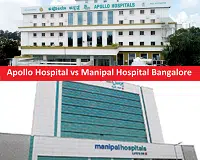
Bariatric Surgery in Kenya
Are you battling to lose weight and looking for bariatric surgery in Kenya? Obesity has become a significant problem due to lack of exercise, eating junk food, a sedentary lifestyle, or inherited. In addition, weight gain causes blood pressure, cardiovascular disorder, and diabetes. But don’t fret; there are so many advanced methods to curtail obesity by weight-loss surgery or bariatric surgery in Kenya. Do you know what fascinates patients in Kenya is the doctor’s experience because they become specialists from the top universities in the US and Europe? In addition, the bariatric surgery cost in Kenya is low due to knowledgeable doctors and world-class facilities for bariatric surgery in Kenya.
The bariatric hospitals in Kenya are fully equipped with state-of-the-art technologies for laparoscopic surgery. Bariatric surgery in Kenya has boosted in recent years, as patients from all over the world go to Kenya for the best medical experience. Kenyans with weight-loss issues don’t have to visit abroad for expensive medical services for weight reduction procedures.
The bariatric hospitals in Kenya offer advanced complete weight management programs such as laparoscopic surgery and minimally-invasive bariatric surgery for patients who cannot successfully reduce weight by conventional methods like diet and exercise. So, don’t wait, and book your appointments at experchikitsa.com and get the best estimation of bariatric cost surgery in Kenya within your budget now?
Bariatric Surgery Cost in Kenya
The gastric balloon surgery costs in Kenya are Sh350,000, while in Europe, the charge is Sh600,000-Sh700,000. A gastric sleeve surgery costs in Kenya Sh850,000 while a bypass costs around Sh1 million. While at the hospital in Kenya, this surgery costs less than Ksh 500,000 (US$5,000), but if performed abroad, the patient will have to shell out KsH1.5 million.
Bariatric Surgery Cost in Kenya
| Bariatric Surgery in Kenya | Average Cost in USD | Average Cost in Kenya Shilling (KES) |
| Biliopancreatic Diversion | $6,500 | Ksh 780,000 |
| Gastric Ballooning | $7,500 | Ksh 900,000 |
| Gastric Band Surgery | $6,800 | Ksh 816,000 |
| Gastric Bypass Surgery | $7,300 | Ksh 876,000 |
| Gastric Plication | $7,000 | Ksh 840,000 |
| Gastric Sleeve | $6,500 | Ksh 780,000 |
| Revision Gastric Bypass Surgery | $8,000 | Ksh 960,000 |
| Roux-en-Y Gastric Bypass | $7,200 | Ksh 864,000 |
| Sleeve Gastrectomy | $6,500 | Ksh 780,000 |
What is Bariatric Surgery?
Bariatric surgery or weight-loss surgery is performed in obese people where nonsurgical methods (healthy eating and exercises) are ineffective for losing weight.
First, let’s know who qualifies for bariatric surgery in Kenya?
For Weight-loss surgery:
-Should possess a body mass index (BMI) greater than or equal to 40.
-Have more than 100 pounds overweight.
– Should have a BMI of 35 or more with obesity complications.
Why is Bariatric Surgery done?
Bariatric surgery aid in losing excess weight and lower your risk for possibly severe obesity-related health conditions, such as:
-Cardiovascular diseases and stroke
-High blood pressure
-Nonalcoholic fatty liver disease (NAFLD) or nonalcoholic steatohepatitis (NASH)
– Sleep apnea
– Type 2 diabetes
Types of Bariatric Surgery in Kenya
Let me explain the different kinds of bariatric surgery carried out in Kenya. There are different types of surgeries for your health needs and your preference. These are:
-Biliopancreatic Diversion: This operation is termed biliopancreatic diversion (BPD) or the Scopinaro procedure. This surgery is divided into two steps, and the first step includes doing the same procedure as sleeve gastrectomy. The second surgery links the end part of the intestine to the duodenum close to the stomach, which is the duodenal switch and biliopancreatic diversion, avoiding the major part of the intestine. This surgery reduces the eating ability and decreases the absorption of nutrients. Biliopancreatic diversion surgery cost in Kenya is Ksh 780,000($6,500).
-Gastric Ballooning: A gastric balloon, also called an intragastric balloon (IGB) or a stomach balloon, is an inflatable medical instrument (balloon) that is placed into the stomach for the time being to aid in reducing weight. It benefited in the weight loss process when food and exercise did not work and did not suggest surgery for the patient. Gastric ballooning surgery cost in Kenya is Ksh 900,000 and $7,500.
-Gastric Band Surgery: The movable gastric band contains the insertion of an inflatable band near the upper portion of the belly that creates a little pouch above. It creates less space so a smaller amount of food can be deposited, and patients reach fullness faster. The band is made smaller later with frequent adjustments once the weight loss goal is achieved in every adjustment. Gastric band surgery price in Kenya is Ksh 816,000 and $6,800.
–Gastric Bypass Surgery: Gastric bypass surgery is referred to as Roux-en-Y (roo-en-wy) gastric bypass. In this process, surgery is generally not reversible. It reduces the quantity of food we eat in one sitting and slows the absorption of nutrients. In this bariatric surgery, a small sack in the stomach is directly linked to the small intestine. After that, the food proceeds from the small pouch of the stomach in the small intestine without going via the stomach, which is an initial part of the small intestine. This procedure is performed when diet and exercise do not work for weight- loss. Gastric bypass surgery cost in Kenya is Ksh 876,000($7,300), whereas Roux-en-Y gastric bypass surgery price in Kenya is Ksh 864,000($7,200).
-Gastric Plication: Laparoscopic gastric plication is an innovative, minimally invasive weight-loss surgery process that decreases the size of the stomach volume to almost 3 ounces. It is a limiting weight-loss surgery that controls the amount of food the stomach can carry. Gastric plication surgery cost in Kenya is Ksh 840,000 and $7,000.
-Revision Gastric Bypass Surgery: Gastric bypass revision is carried out as a revision process for patients whose previous Lapband, Gastric Sleeve gastric bypass surgery is not successful, and the weight-loss aim is not achieved. The surgery is generally done laparoscopically and is a usually chosen revision technique. The doctor first examines the previous procedure and then determines what needs to be fixed. After that, he will perform either complete the bypass or do correction in the last surgery bypass. This surgery is a good choice for patients whose weight is not lost or regained weight after post-surgery. Revision gastric bypass surgery cost in Kenya is Ksh 960,000($8,000).
-Sleeve Gastrectomy: Gastric Sleeve surgery or Sleeve gastrectomy, also called a vertical sleeve gastrectomy. In sleeve gastrectomy, around 80% of the stomach is removed, leaving a long, tube-like sack. This reduced size stomach can’t carry as much food. It also makes less appetite-regulating hormone ghrelin, which may reduce the craving to eat. Advantages of this bariatric surgery involve weight loss and no redirecting of the intestines. This surgery needed a shorter hospital stay than other bariatric procedures. Gastric Sleeve surgery cost in Kenya is Ksh 780,000 and while $6,500. Similarly, sleeve gastrectomy price in Kenya is Ksh 780,000($6,500).
How to Prepare for Bariatric Surgery
Before the Surgery
Talk to your surgeons about the surgery, location, scar size, and side effects after the surgery. The doctor will recommend blood tests and imaging tests like an abdominal ultrasound or computerized tomography (CT) that help the surgeon plan the procedure. In addition, the surgeon advises you on a special diet before a month of the surgery. Then the doctor will ask you to refrain from eating and drinking at midnight the night before surgery.
During the Surgery
After the anesthetic medication is injected into your intravenous Vein IV, the surgeon will start the operation by cutting your abdomen. If you choose open laparotomy, the surgeon also makes a large incision to examine the stomach and small intestine. Four to six small abdominal openings are created if you opt for a minimally invasive laparoscopic method. The following stages of the surgery may vary depending on the type of bariatric surgery you are taking. Once the operation is done, seal the skin incision and will cover the surgical wound with a surgical dressing.
After the Surgery
In the recovery room, the patient is monitored and has to stay in the hospital for days. In the hospital, Doctors will ask you to get up and walk alone in a hospital. During the hospital stay, drink clear fluids and advance to thicker liquids or solids. A doctor will make sure that you can able to pass stool before you leave the hospital.
After the initial recovery, you can leave the hospital and get instructions about home pain management, regular follow-up, and medications. Since there are many kinds of bariatric surgery, recovery can differ. The doctor will advise some restrictions on physical activity for some weeks, and they have to make an effort to move within these limits. Visit your doctor if you notice any side effects.
Advantages and Disadvantages of Bariatric Surgery in Kenya
Advantages are:
–Success in decreasing weight loss for a more extended time.
-In the long term, it reduces the condition of type 2 diabetes.
-Enhance cardiovascular health.
-Relief in the depression.
-Removes obstructive sleep apnea problem.
-Relive in joint pain.
– Improve other medical problems.
Disadvantages are:
– Bleeding or perforation of the stomach and intestines
– Blockage in bowel
– Malnutrition, dumping syndrome, and adrenal failure
– Lifelong nutrient deficiency condition
-Incisional hernia or adhesions create pain
– Gastrointestinal issues such as gastrointestinal reflux disease (GERD), gallstones, and pancreatitis can happen.
– Emotional issues, such as excessive indulgence in eating and depression
Summary of Bariatric Surgery in Kenya
In short: The selection of bariatric surgery in Kenya depends on the body weight and previous health conditions that a medically trained weight-loss surgeon decides.
Choosing bariatric surgery in Kenya helps in long-term weight loss, remission of health issues related to obesity, fast recovery, fewer complication risks, and boosting the overall health. So if you fit in any of the above criteria for weight loss, bariatric surgery is the answer.
Finding the right surgery for your health requires a talk with your surgeon. Always consult the doctor about each surgery, cost, and stay for surgery in the hospital and post-surgery recovery.
FAQs of Bariatric Surgery in Kenya
-Can bariatric surgery be painful?
After the operation at the incision site, you can feel pain.
-How much time does bariatric surgery take?
The surgery takes about two hours. If performed laparoscopically, only a small incision is needed. Whereas generally, a gastric sleeve patient’s hospital stay is, on average, one to two days.
-How much time does it takes to heal the stomach after bariatric surgery?
On average, it takes about 2-3 weeks for the cut to heal and 6-8 weeks for the stomach staple line to cure. After one month, most people may start a regular exercise routine.
-Can bariatric surgery be successful?
Yes, bariatric surgery is primarily successful. Weight reduction is around 30 to 50 percent of their excess weight in the first six months and 77 percent of extra weight in the first 12 months after surgery.
-Why does bariatric surgery fail?
Bariatric surgery fails for several reasons, such as significant nutritional deficiencies/difficulties and failure to lose weight due to not following a healthy lifestyle.






